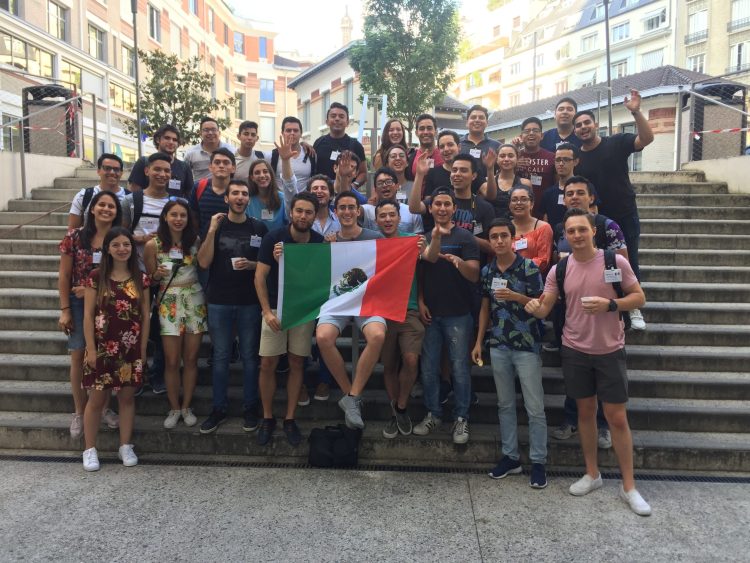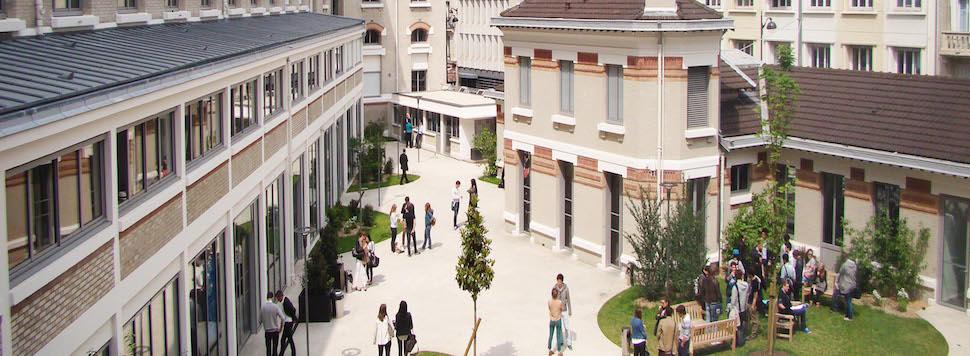
Tuition fees
The tuition fees below are given for the year 2024- 2025. Tuition fees for each year of study are subject to change each year, and will be communicated to students upon re-enrollment for the following year.
Grande Ecole Engineering Program
- Year 1: €10,950
- Year 2: €10,950
- Year 3: €10,950 (work-study format available)*
- Year 4: €10,950 (work-study format available)*
- Year 5: €10,950 (work-study format available)*
- Prépac training (March start date): €6,400
Bachelor program
- Year 1: €7,350
- Year 2: €8,600 (work-study format available)*
- Year 3: €8,600 (work-study format available)*
- Spring training (March start): €5,200
MSc Program
- Year 1 (M1): €10,700
- Year 2 (M2): €10,700
A deposit at registration is required to validate your admission.
The balance can be paid in cash or in 7 monthly instalments from September to March.
*In a work-study program, the student becomes an apprentice of a host company and receives a salary. Tuition fees are covered.
The Bachelor program is not eligible for the CROUS scholarship.
International students
As an international student, a deposit of 3500€ is required upon registration to reserve your place in our school.
The balance can be paid in cash before the end of September, or in 2 monthly instalments in October and December.
Regardless of the program, a flat-rate fee of €490 will be added to the tuition fees for all students with an international background (outside Europe). This amount corresponds to a Service Offer Pack from the International Admissions team that accompanies the student throughout the registration process (administrative procedures for obtaining a student visa, finding accommodation, etc.).
Do not give up on your engineering studies
Financing your studies at ECE should not be an obstacle. The School has always been concerned with providing support to students and families to help finance the cost of schooling. There are many grants and financing possibilities. To help you find your way around, we have listed the main avenues to explore. The ECE admissions service is also at your disposal to answer all your questions.
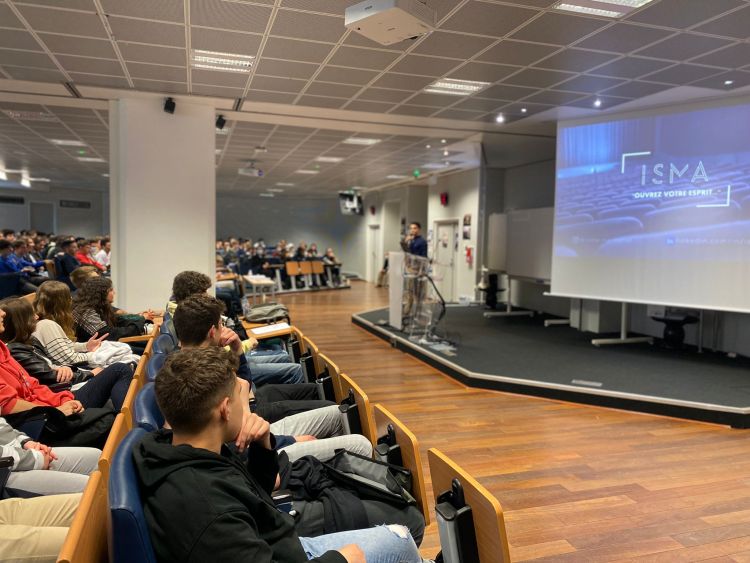
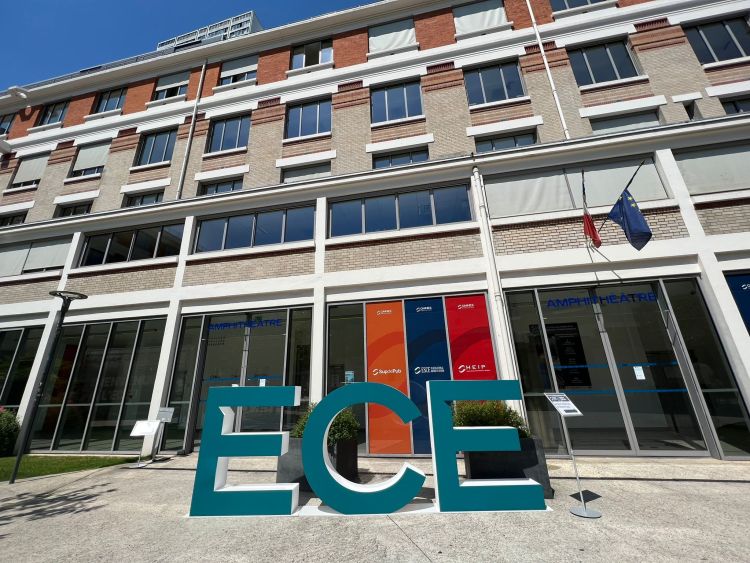
OMNES Education Group discounts
FRATRIE.
If students who are siblings enroll at ECE for the same school year, then a 10% discount is applied on the tuition fees for each of them. A copy of the family record book will be required. Discount applicable each year and per student. If a student enrolled at ECE has siblings enrolled in another OMNES Education Group school in the same academic year, then a 10% discount is applied to the tuition fees for each of them. A copy of the family record book will be required. Discount applicable each year and per student.
LOYALTY.
Any OMNES Education Group student pursuing an MSc offered by the same group, after graduating from the OMNES Education Group Grande Ecole Program, will see a 10% discount applied to the MSc tuition fees. Discount applicable only the 1st year
for entry into the Program. Any student already enrolled in an OMNES Education Group program who registers for another OMNES Education Group program will receive a 10% discount. Discount applicable only in the 1st year of entry into the program.
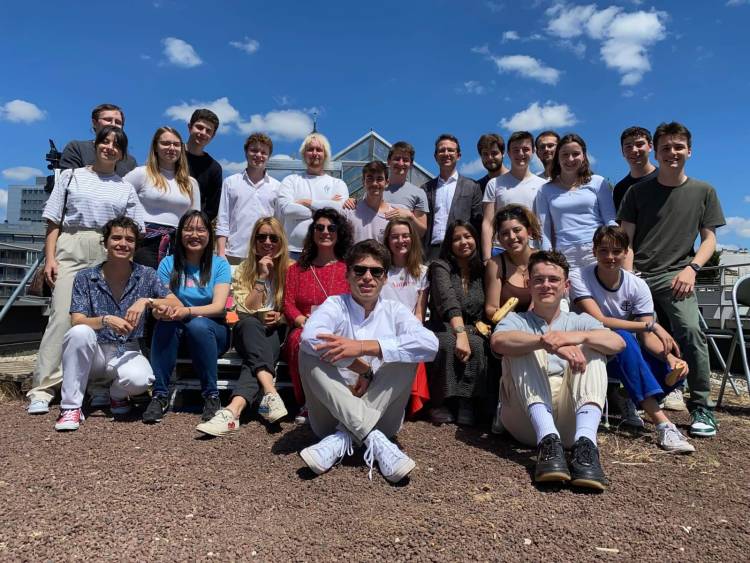
INSTITUT DE L’ENGAGEMENT.
The Institut de l’Engagement, through a rigorous admission procedure, identifies high-potential young people who are committed to public service missions, and the OMNES Education Group has developed a Corporate Social Responsibility (CSR) strategy. This partnership is part of a strong desire to provide significant support to all community stakeholders moving towards a shared goal of enhancing social values. Under these conditions, the selected student is awarded a 50% tuition discount. Discount applicable only in the 1st year of entry into the program.
FRENCH OVERSEAS TERRITORIES AND REGIONS.
Students who took their competitive exams or did their schooling in the French overseas territories or regions are entitled to a 10% discount applicable each year.
HIGH LEVEL SPORTS SCHOLARSHIP.
High level sports students receive a €1500 scholarship each year at the ECE. Students must appear on the ministerial list of high level sportsmen.
CHILD OF THE STAFF.
Any staff child with a full-time or 4/5ths contract receives a 30% tuition discount. Discount applicable each year. Any faculty child with a 50% employment rate > receives a 30% tuition discount. Discount applicable each year.

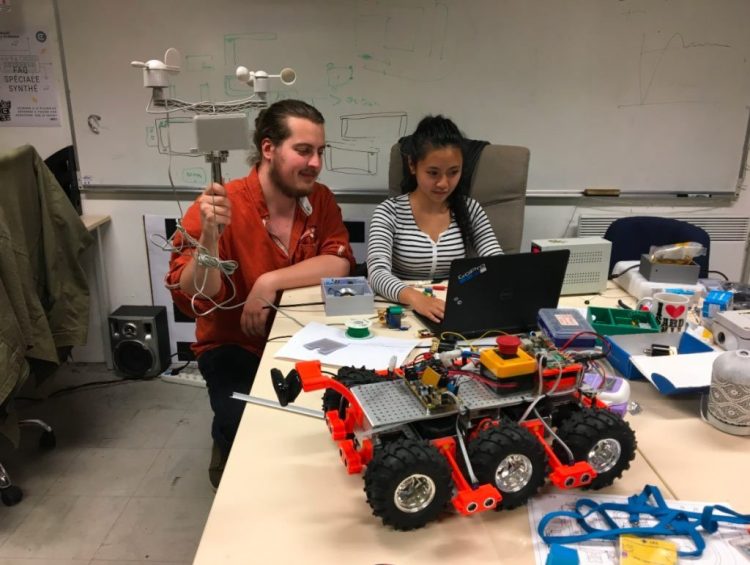
Higher education grants (CROUS)
Their allocation and amount vary according to the income of the fiscal household, the number of dependent children, and the distance from the place of study. More info here. The website of the Centre national des œuvres universitaires et scolaires(CNOUS) presents all the scholarships: merit-based, social criteria, sesame scheme, etc. You can obtain an estimate of the amount of the scholarship you are entitled to thanks to the simulator on www.cnous.fr.
The Bachelor program is not eligible for the CROUS scholarship. However, students who are eligible for the CROUS scholarship receive a flat rate discount of 500€ granted by the Omnes Education Group. This discount is granted upon presentation of the eligibility certificate from the CROUS.
The certificate is issued by the CROUS of Paris at the request of the student from April of the year preceding the entry to the school. Only the eligibility certificate is valid.
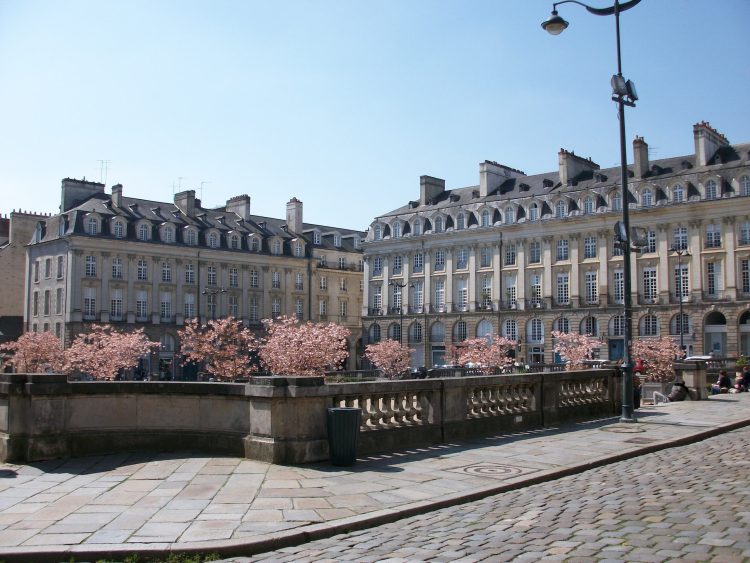
Assistance to rent a home
Through the scholarship application, the student can request the allocation of student housing on campus. Close to the school and with affordable rents, these accommodations are in high demand, and priority is given to students with scholarships or financial difficulties.
In order to rent housing outside of university residences, a public guarantee system is available for students aged 18 to 30. By covering up to 3 years of rent, this device reassures landlords and gives students a better chance of obtaining the desired accommodation.
In addition, the cost of housing and living expenses during your studies can be financed by a student bank loan. This type of loan is not limited to tuition fees. It is recommended that you check out online banks, which offer low rates and accounts with no management fees.
The Mobility Passport for students from the French Overseas Regions and Territories
The Mobility Passport entitles students from overseas territories or regions to one round-trip ticket per academic year for studies in metropolitan France or overseas that do not exist or are saturated in their home department or interzone. For students from overseas territories or regions, the Mobility Passport system is managed by the CROUS in the French overseas territories. For the students of the TOM, it is managed by their vice rectorate
or High Commission. More info on http://www.ladom.fr/
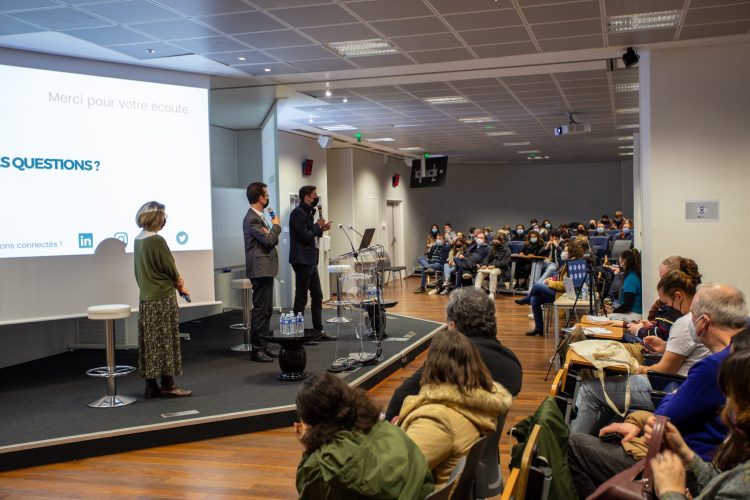
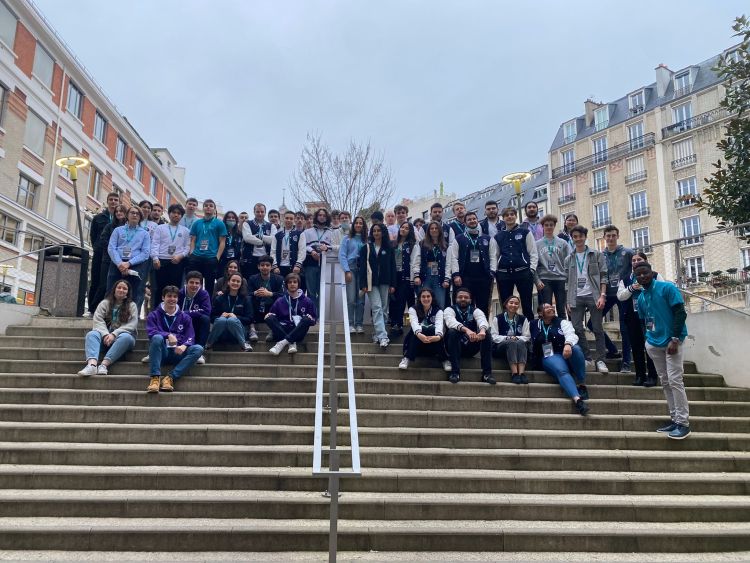
Student housing assistance from the CAF (Caisses d’Allocations Familiales)
Allocated by the Caisse d’Allocations Familiales according to resources, the Aides Personnalisées au Logement (APL) or Allocation Logement à Caractère Social (ALS) can be combined with higher education grants. Any student can be entitled to it. However, these allowances cannot be combined with other family benefits for children under 20. A student who chooses to receive housing assistance is no longer considered dependent on his or her parents for the purposes of family benefits.
The average amount of housing assistance is 200 to 240 €/month. More info on www.caf.fr
CAF : Tremplin Jeunes Insertion
Financial aid may be granted by the Caisse d’Allocations Familiales as part of its “Tremplin Jeunes Insertion” program to finance part of the student’s tuition fees. This assistance can reach up to 1 600€.

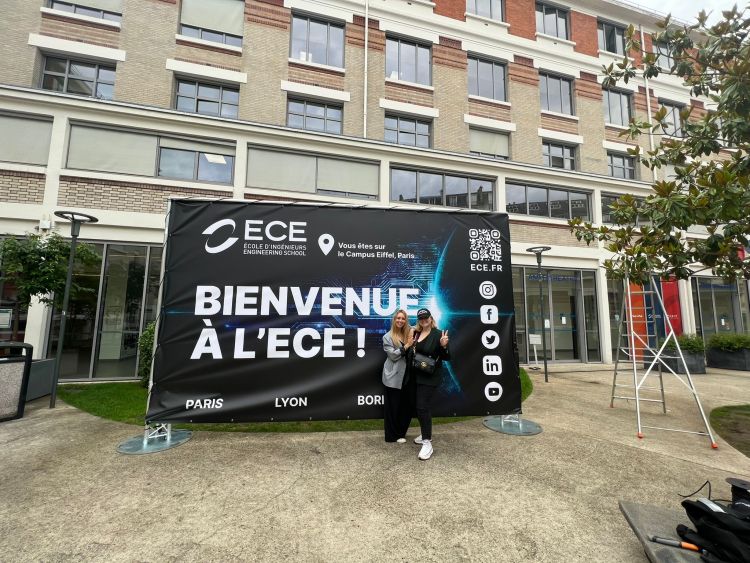
Bank loans for students
In order to allow students to diversify their
sources of financing for their student life, ECE and the Caisse d’Epargne have signed a partnership
guaranteeing low rates and offers for every new client who is an ECE student. Thanks to this partnership, the Caisse d’Epargne can grant a student loan with an extremely low Total Effective Rate (TEG) to all students under 28 years of age, whether they are French or nationals of the European Union or the European Economic Area. The possibility of deferred repayment (partial or total) after graduation is left to the choice of
the student borrower.
The honorary loan
Students of French nationality who cannot – in view of their situation – obtain a grant
on social criteria, can apply for an honorary loan. This is an interest-free loan that must be repaid within ten years of obtaining the degree or title applied for (average annual amount: €1,500).
Honorary loans are granted according to “educational, social and local” criteria. Please note: Scholarship recipients on social criteria who are on step 0 can apply for an honor loan. The application must be made on or after September 1st. Contact the CROUS to find out how to apply.

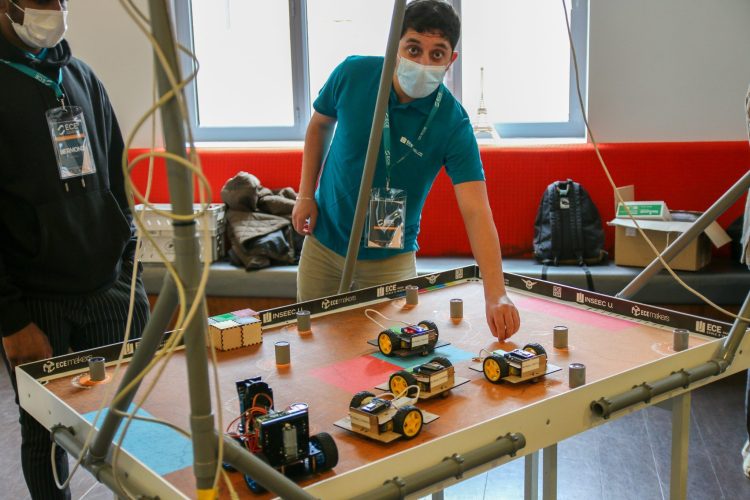
Side jobs
In addition to the different financial aids, ECE students can be paid for specific missions proposed by the Junior Entreprise or the ECE Job Service .
– The missions of the JobService
This association works like a temp agency and offers small jobs for unskilled labor: inventory, hauling, envelope stuffing, etc. Students are paid by the hour on the basis of the minimum wage.
– The missions of the JEECE junior company
The Junior Enterprise also offers paid one-off assignments but for longer periods. JEECE operates as a service company specializing in IT, electronics, telecom and networks.
Student internships
You are not considered an employee of the company. You do not receive a salary, compensation or allowance. However, a gratuity is paid to you if the duration of your internship is more than 2 consecutive months in the same school year (the equivalent of 44 days at 7 hours a day).
Internships in the 2nd year of the preparatory program, 1st year of the engineering program and 1st year of the bachelor program:
These first two compulsory internships can be the subject of a fixed-term contract so that the students can receive the minimum wage.
2nd and 3rd year engineering internships:
The average gratification for 2nd year internships is 800 €/month. In the final year, it is 1,000 €/month.


Apprenticeships
The advantage of the apprenticeship program is that you do not have to pay tuition fees, as these are paid for by the host company. In addition, apprentices are paid between 41% and 78% of the minimum wage, depending on their age and level of study.
For more information, ask for the ECE learning brochure.
Local government assistance
Regions, departments or cities often provide financial aid to students from their territory. The forms of aid (scholarships, honorary loans, emergency aid, etc.) and the methods of allocation vary greatly (based on social criteria, depending on the course of study, level, study project or destination for an internship abroad, etc.). The assistance of the departments and regions is particularly useful for those who are studying or doing internships abroad. Please contact each local authority where you live (Social Action Department) to find out the exact timetable and procedures to follow.


Mobility grants
Students on a mobility trip abroad during the school year can benefit from a
specific grant:
– Erasmus+ for academic stays in European partner universities or for internships in a European country (outside France);
– The Ile de France region’s scheme (only students whose resources do not exceed a certain ceiling can apply for this second grant, and it cannot be combined with an honorary loan).
Agencies external to ECE fund these scholarships and determine the overall budget for the school, and ECE distributes the allocated funds among its students: the applications must be sent directly to the ECE International Department.
Other national financial aid
The SESAME SYSTEM:
All students who do not receive a grant based on social criteria, but whose taxable income is not subject to income tax, can now benefit from merit and mobility grants. Contact your CROUS to find out if you are eligible.
Specific one-time assistance:
The National Emergency Assistance Fund (FNAU), created at the beginning of the 2008 academic year, provides a response to students’ precarious situations (family breakdown, proven independence, etc.). The student must apply for assistance from the CROUS of his or her academy. The CROUS director decides, on the basis of national criteria, on the allocation and the amount of the specific aid after the advice of a commission.
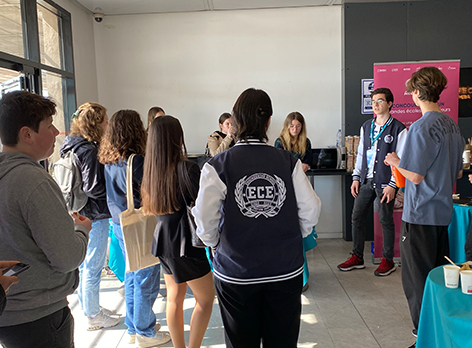
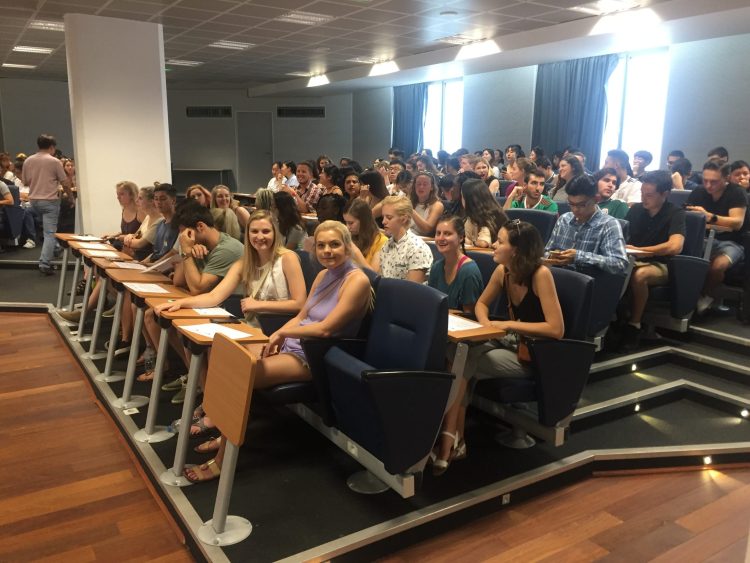
Companies
Some companies, either directly or through their Works Council (PSA, Banque de France, etc.), also give a helping hand to the children of their employees pursuing higher education.
More info at the Works Council of the parents’ companies.
CAMPUS FRANCE (international students)
This organization awards scholarships to students of foreign nationality according to
agreements signed with certain countries.
More info: http: //www.campusfrance.org/fr/
